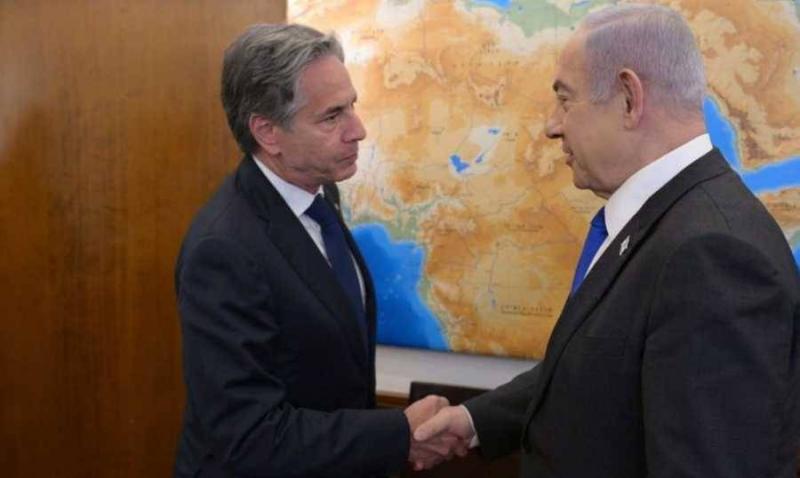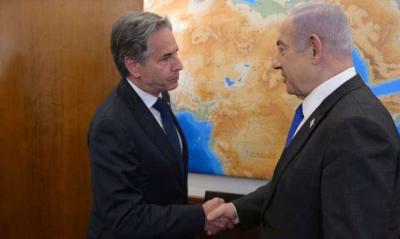Lebanon was present in the recent American-Israeli meetings held at both political and military levels. Politically, U.S. Secretary of State Antony Blinken discussed the Lebanese file and the developments between the Israeli army and Hezbollah with various Israeli officials. Militarily, U.S. Central Command Chief General Michael Kurilla discussed the Lebanese front with Israeli Chief of Staff Herzi Halevi, as reported by "Al-Modon."
The disagreements between Israel and the U.S. are no longer limited to developments in the Gaza war, but encompass various issues. Netanyahu believes that the recent ministerial resignations in his government are the result of a U.S. undercut, especially after he rejected the proposal put forward by President Joe Biden.
Netanyahu faces Biden while Israel is experiencing significant internal strife due to these resignations, amidst American attempts to topple Netanyahu's government. He confronts these efforts and goes further in opposing the Biden administration. He aims to have an impact on the American elections, with a key stop in the U.S. Congress. He responds to several American attempts to create rifts within the Likud Party to further weaken him and push him towards early elections, which he rejects and seeks to overcome either by continuing operations in Gaza or by shifting focus to the Lebanese front.
Netanyahu deals with Biden as if he is a hostage, having had his full cover for his war in Gaza and his escalation against Hezbollah withdrawn, after Americans stated that Israel has the right to defend itself, despite Washington not supporting the option of expanding the war with Lebanon.
The U.N. Security Council decision passed by the Americans intensifies the disagreement with Tel Aviv. Conversely, Washington is attempting to appease Israel by resuming new arms deals. These arms could be intended for use in Lebanon, especially since some Israeli reports confirmed the depletion of significant ammunition needed by the Israelis for operations in Lebanon, based on the principle of escalating operations rather than expanding them.
The Disagreement with Blinken
Reports suggest that the meeting between Blinken and Netanyahu was not positive due to differing approaches between Israel and the U.S. administration regarding the Gaza war and its continuation, with Netanyahu's agreement to the first phase of Biden's proposed deal only to ensure the return to fighting following the release of hostages. The disagreement also extended to how to deal with the Lebanese front.
Sources indicate that Blinken was very interested in nurturing an agreement with Saudi Arabia, but Netanyahu refused to agree to a Palestinian state. There was also a disagreement regarding the post-Gaza plan. Thus, all these disagreements could affect assessments regarding the Lebanese file and the status of the front with Hezbollah. Despite significant American pressure to prevent escalation, Israel continues to grapple with internal conflict over how to deal with Hezbollah and the Lebanese front.
Israeli Frustration
Some indicators suggest that Netanyahu does not want war with Lebanon, as he works to freeze all military plans approved by the army for expanding operations against the party or even executing a ground military operation. Netanyahu considers the army exhausted and the home front fractured. Therefore, the option of war with Lebanon will not be easy or available, especially without American support or cover for any war or extensive operations.
In Israel, there is a lot of criticism directed at Netanyahu over his repeated visits to the northern settlements and his statements about preparing military surprises, without taking any action. This is particularly noteworthy as the past few days have seen military advancements by Hezbollah, which has publicly used air defense systems against warplanes and intensified military operations against targets deep inside Israel, while the surprises the Israelis have spoken of have not materialized. This has led to discontent internally. In Israel, some feel disappointment regarding the Lebanese front, and there are discussions about preparing for a new course of operations different from the previous ones, in which Tel Aviv regains military initiative, albeit without resorting to wide-scale war, according to "Al-Modon."




